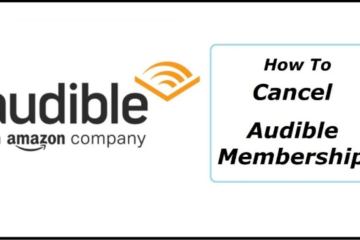An FHA loan is a mortgage backed by the Federal Housing Administration. It’s designed to help first-time homebuyers or those with less-than-perfect credit secure a home loan with lower down payments and flexible requirements.
But before jumping into this type of mortgage, it’s essential to understand the pros and cons of FHA loans to determine if it fits your needs.
The Pros of FHA Loans
There are alot of fha pros and cons but first we explore the pros:
1. Low Down Payment Requirements
One of the biggest advantages of FHA loans is the low down payment requirement. You can secure a loan with as little as 3.5% down, making homeownership more accessible.
Why It Matters: This is perfect for buyers who don’t have significant savings but want to buy a home sooner.
2. Flexible Credit Score Criteria
FHA loans allow borrowers with lower credit scores to qualify. For instance, a credit score as low as 580 is accepted for the 3.5% down payment option.
Why It Matters: If your credit score is below 700, you may still qualify, unlike conventional loans that have stricter requirements.
3. Competitive Interest Rates
FHA loans often have lower interest rates compared to conventional mortgages. This helps reduce the overall cost of borrowing over time.
Why It Matters: Lower interest rates can save you thousands of dollars over the life of your loan.
4. Assistance with Closing Costs
In many cases, sellers or lenders can help cover closing costs, reducing your upfront expenses.
Why It Matters: Buyers who are short on cash can still close on their dream home without financial stress.
The Cons of FHA Loans
1. Mortgage Insurance Premiums (MIP)
Borrowers are required to pay upfront and annual mortgage insurance premiums. This can increase the cost of your loan significantly.
Why It Matters: Unlike conventional loans, FHA loans mandate MIP, even if you make a sizable down payment.
2. Loan Limits
FHA loans have limits on how much you can borrow, depending on the location of your property.
Why It Matters: If you’re buying a home in a high-cost area, you may need to consider other financing options.
3. Property Standards
FHA loans require that the property meets strict appraisal and inspection standards. This ensures the home is safe and livable.
Why It Matters: If the property doesn’t meet these requirements, the seller will need to make repairs, or your loan might not go through.
4. Long-Term Costs
While the upfront costs are lower, the ongoing mortgage insurance premiums and fees can make FHA loans more expensive in the long run.
Why It Matters: Buyers should calculate these costs over time to ensure they fit within their budget.
FHA Loan Pros and Cons: A Quick Summary
Explore the most focused fha loan pros and cons:
Pros:
- Low down payment requirement.
- Flexible credit score qualifications.
- Lower interest rates.
- Help with closing costs.
Cons:
- Mandatory mortgage insurance premiums.
- Limited borrowing amounts.
- Strict property standards.
- Higher long-term costs.
Is an FHA Loan Right for You?
An FHA loan may be a good choice if:
- You’re a first-time homebuyer with limited savings.
- You have a lower credit score and can’t qualify for conventional loans.
- You’re looking for a lower upfront cost to buy a home.
However, if you have a high credit score and can afford a larger down payment, conventional loans might save you money in the long run.
Tips for Navigating FHA Loans
1. Understand the Terms
- Be clear about mortgage insurance costs and loan limits.
- Discuss with a lender to understand how these impact your budget.
2. Improve Your Credit Score
- While FHA loans are flexible, a higher credit score can still secure better terms.
- Aim to pay down debts and avoid new credit inquiries before applying.
3. Work with a Trusted Lender
- Not all lenders are experienced with FHA loans.
- Choose one who understands the process and can guide you effectively.
Benefits of an FHA Loan for First-Time Buyers
Key Advantages:
- Simplifies the buying process for beginners.
- Opens up homeownership to those who may have been disqualified under conventional terms.
- Offers financial breathing room with low upfront costs.
Choose Bouk Mortgage To Make Good Decision
Bouk Mortgage is your go-to expert for FHA loans and other home financing solutions. We help you navigate the pros and cons of fha loans to determine the best fit for your financial situation.
Our team simplifies the process, ensuring you understand the terms, fees, and benefits of FHA loans. Whether you’re a first-time buyer or exploring new options, Bouk Mortgage is here to make your journey to homeownership smooth and stress-free.
Contact Bouk Mortgage today to explore your options and get started on your dream home journey!
Conclusion
FHA loans are an excellent option for buyers who need flexible credit requirements and low upfront costs. However, they come with trade-offs like mortgage insurance premiums and property restrictions.
By understanding the pros and cons of fha loan, you can decide whether this type of financing fits your needs and financial goals. Work with trusted professionals to explore your options and ensure a smooth application process.
FAQs
1. Can I qualify for an FHA loan with bad credit?
Yes, FHA loans are designed for buyers with lower credit scores. You can qualify with a score as low as 580 for a 3.5% down payment.
2. Do FHA loans require a large down payment?
No, FHA loans are known for their low down payment requirement of 3.5%, making them accessible for buyers with limited savings.
3. Are FHA loans more expensive than conventional loans?
While FHA loans have lower upfront costs, ongoing mortgage insurance premiums can make them more expensive over time compared to conventional loans.



0 Comments